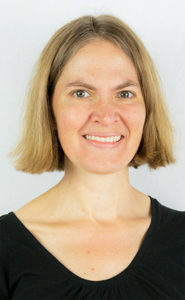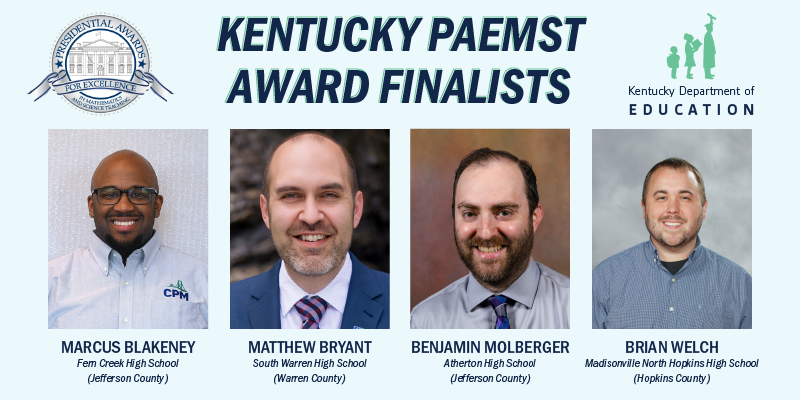By Robin Hill
robin.hill@education.ky.gov
At the 2016 Kentucky Council of Teachers of Mathematics conference, Jennifer Wilson provided a thought-provoking keynote on the Slow Math Movement, which supports allowing students to think deeply versus being in a rush to learn. I asked if she would write an article for Kentucky Teacher to share the Slow Math Movement with teachers across the Commonwealth of Kentucky.
Wilson teaches mathematics at Northwest Rankin High School and is a curriculum specialist at the Rankin County School District in Brandon, Miss. She is an advocate for effective mathematics instruction and a National Board certified teacher. She is an instructor for Texas Instrument’s Teachers Teaching with Technology program.
Wilson enjoys learning alongside the Illustrative Mathematics community and she is a recipient of the Presidential Award for Excellence in Mathematics and Science Teaching. You can read her blogs at Easing the Hurry Syndrome and Slow Math Movement, or catch her on Twitter @jwilson828.
Here’s what Wilson had to say about slowing things down.

Jennifer Wilson
By Jennifer Wilson
What images come to mind when you hear slow food? The mission of Slow Food International – which has organizations in more than 150 countries – is to link the pleasure of good food with a commitment to community and environment.
Slow food is about paying attention to where your food comes from. I imagine many of you grew up with gardens in your backyard and some still have them. We’ve recently seen the advent of farm-to-table restaurants, with the names of local growers posted on a chalkboard when you walk in. We’ve seen a surge in the number of local farmers’ markets.
Noted novelist and Kentuckian Wendell Berry is not just a proponent of slow food, he is one of its originators. The words of Berry have helped shape who I am, who my family is. He is one of the reasons I’ve learned about the slow movement.
My family and I live on First Fruits Farm in Jackson, Miss. Slow food, to us, means growing and putting up as much of our own food as we can, taking care of chickens and having lots of slow food meals with our family and friends.
So what do you think of when you hear slow math? Tweets that have been hashtagged with #slowmath often bemoan boring professors who drone on and on with example after example.
But what could slow math look like for students and teachers in a classroom?
If we started a Slow Math Movement, what would we value? What would we include if we wrote a slow math manifesto?
When my daughter Kate was in 3rd grade, she and I were in the grocery one day buying potato chips. We examined the labels. The smaller bag was 34 cents per ounce; the larger bag was 29 cents per ounce. I asked Kate which one we should buy. Her answer: the small bag.
I was surprised. Kate had been comparing numbers successfully for a while.
So I asked, “Why did you choose the small bag?” Her answer, “Doesn’t it taste better if it is more expensive?”
In the Slow Math movement, we take time to listen to our students’ reasoning.
In his essay Conservationist and Agrarian, Berry says, “To be interested in food but not in food production is clearly absurd.”
I wonder if there is a corollary for students learning mathematics: “To be interested in students learning math but not in students understanding math is clearly absurd.”
In his book, In Praise of Slowness, Carl Honoré wrote:
“It is a cultural revolution against the notion that faster is always better. The Slow philosophy is not about doing everything at a snail’s pace. It’s about seeking to do everything at the right speed. Savoring the hours and minutes rather than just counting them. Doing everything as well as possible, instead of as fast as possible. It’s about quality over quantity in everything from work to food to parenting.”
It’s about quality over quantity in our teaching and learning of mathematics.
And so I wonder … what can you do to further the Slow Math movement? How can you make sure teachers and students know they have time to enjoy a slow math lesson, asking questions, making conjectures, listening to arguments and engaging in productive struggle?
Let’s continue that conversation at the SlowMath hashtag.



Leave A Comment